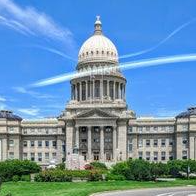
Rising demand, legal hurdles and overcrowded services characterise the fight for access to care
Abortion providers in Oklahoma are already navigating conditions similar to a post-Roe v Wade world, as restrictions in the state put pressure on an already strained healthcare system. Governor Kevin Stitt has signed laws criminalising abortion care, mirroring Texas’s restrictive six-week ban and opening the door for private lawsuits against those aiding or supporting abortion access.
Despite protections under Roe v Wade, Oklahoma’s clinics are grappling with growing demand from patients unable to access abortion care in other states. Between September and December 2021, Planned Parenthood clinics in Oklahoma experienced a nearly 2,500 per cent increase in abortion patients from Texas alone, as the state’s abortion restrictions forced many to travel across borders.
Dr Iman Alsaden, medical director for Planned Parenthood Great Plains, emphasised the mounting strain: “We are already living in a virtually post-Roe world in our region.” A growing number of people are having to travel long distances—often overnight—to access abortion services in Oklahoma or neighbouring states such as Kansas, which allows abortion up to 20 weeks.
Access to medication abortion adds another layer of complexity. While the pills are approved by the Food and Drug Administration for at-home use and telehealth visits, 19 states, including Oklahoma, have restricted access to these medications. Many patients must therefore endure in-person appointments and time-consuming obstacles just to secure their prescription.
Dr Maya Bass, who travels from New Jersey to Oklahoma every few weeks to offer abortion services at the Trust Women Foundation clinic in Oklahoma City, shared the challenges: “Patients come to me and tell me that they’ve driven six or more hours to get there, it took them weeks to get an appointment because of the volume increase, or just time for them to raise the money to travel and to find childcare.”
The legal environment has worsened access. Stitt has pledged to make Oklahoma “the most pro-life state” in the US, but critics argue that such policies place more burdens on already underserved populations, particularly people of colour. Oklahoma has one of the highest maternal mortality rates in the country, with rates of 23.5 maternal deaths per 100,000 live births between 2017–2019, according to federal data.
Organisations like the Center for Reproductive Rights and Planned Parenthood Federation of America have taken legal action against Oklahoma’s restrictive laws, but the system remains under pressure. With a potential Supreme Court ruling overturning Roe v Wade imminent, abortion providers are strengthening their capacity, bolstering telehealth infrastructure, and partnering with abortion funds to assist patients crossing state lines.
Dr Bass, reflecting on the political dimensions of the fight, stated: “The people who are affected by these laws are already being underserved by our system… It’s very hard to have a politician come into my patient room to make the decision that is really something that should be entirely based on what my patient’s life is and guided by my medical expertise.”
Advocates are urging a collective response, with Dr Bass adding: “This decision is not about patients, it’s not about lives, it’s about controlling people’s bodies and futures.” As the battle over abortion rights continues, the focus shifts to expanding safe access, improving resources and building public support for reproductive healthcare amid a climate of legal uncertainty.












